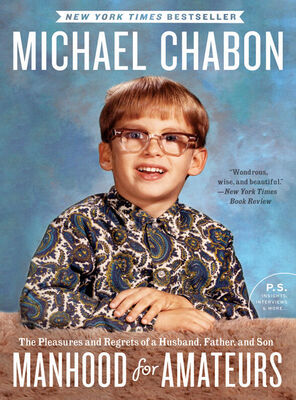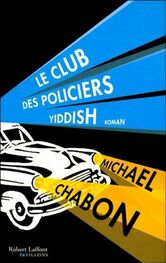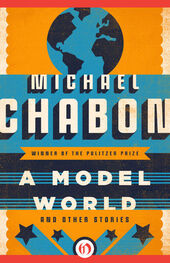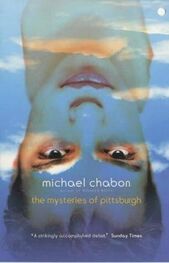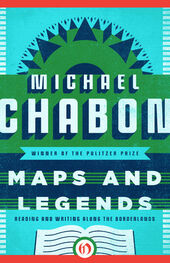Though the wilderness available to me had shrunk to a mere green scrap of its former enormousness, though so much about childhood had changed in the years between the days of young George Washington’s adventuring on his side of the Potomac and my own suburban exploits on mine, there was still a connectedness there, a continuum of childhood. Eighteenth-century Virginia, twentieth-century Maryland, tenth-century Britain, Narnia, Neverland, Prydain — it was all the same Wilderness. Those legendary wanderings of Boone and Carson and young Daniel Beard (the father of the Boy Scouts of America), those games of war and exploration I read about, those frightening encounters with genuine menace, far from the help or interference of mother and father, seemed to me at the time — and I think this is my key point — absolutely familiar to me.
The thing that strikes me now when I think about the Wilderness of Childhood is the incredible degree of freedom my parents gave me to adventure there. A very grave, very significant shift in our idea of childhood has occurred since then. The Wilderness of Childhood is gone; the days of adventure are past. The land ruled by children, to which a kid might exile himself for at least some portion of every day from the neighboring kingdom of adulthood, has in large part been taken over, co-opted, colonized, and finally absorbed by the neighbors.
The traveler soon learns that the only way to come to know a city, to form a mental map of it, however provisional, and begin to find his or her own way around it, is to visit it alone, preferably on foot, and then become as lost as one possibly can. I have been to Chicago maybe a half-dozen times in my life, on book tours, and yet I still don’t know my North Shore from my North Side, because every time I’ve visited, I have been picked up and driven around, and taken to see the sights by someone far more versed than I in the city’s wonders and hazards. State Street, Halsted Street, the Loop — to me it’s all a vast jumbled lot of stage sets and backdrops passing by the window of a car.
This is the kind of door-to-door, all-encompassing escort service that we adults have contrived to provide for our children. We schedule their encounters for them, driving them to and from one another’s houses so they never get a chance to discover the unexplored lands between. If they are lucky, we send them out to play in the backyard, where they can be safely fenced in and even, in extreme cases, monitored with security cameras. When my family and I moved onto our street in Berkeley, the family next door included a nine-year-old girl; in the house two doors down the other way, there was a nine-year-old boy, her exact contemporary and, like her, a lifelong resident of the street. They had never met.
The sandlots and creek beds, the alleys and woodlands have been abandoned in favor of a system of reservations — Chuck E. Cheese, the Jungle, the Discovery Zone: jolly internment centers mapped and planned by adults with no blank spots aside from doors marked STAFF ONLY. When children roller-skate or ride their bikes, they go forth armored as for battle, and their parents typically stand nearby.
There are reasons for all of this. The helmeting and monitoring, the corralling of children into certified zones of safety, is in part the product of the Consumer Reports mentality, the generally increased consciousness, in America, of safety and danger. To this one might add the growing demands of insurance actuarials and the national pastime of torts. But the primary reason for this curtailing of adventure, this closing off of Wilderness, is the increased anxiety we all feel over the abduction of children by strangers; we fear the wolves in the Wilderness. This is not a rational fear; in 1999, for example, according to the Justice Department, the number of stranger abductions in the United States was 115. Such crimes have always occurred at about the same rate; being a child is exactly no more and no less dangerous than it ever was. What has changed is that the horror is so much better known. At times it seems as if parents are being deliberately encouraged to fear for their children’s lives, though only a cynic would suggest there was money to be made in doing so.
The endangerment of children — that persistent theme of our lives, arts, and literature over the past twenty years — resonates so strongly because, as parents, as members of preceding generations, we look at the poisoned legacy of modern industrial society and its ills, at the world of strife and radioactivity, climatological disaster, overpopulation, and commodification, and feel guilty. As the national feeling of guilt over the extermination of the Indians led to the creation of a kind of cult of the Indian, so our children have become cult objects to us, too precious to be risked. At the same time they have become fetishes, the objects of an unhealthy and diseased fixation. And once something is fetishized, capitalism steps in and finds a way to sell it.
What is the impact of the closing down of the Wilderness on the development of children’s imaginations? This is what I worry about the most. I grew up with a freedom, a liberty that now seems breathtaking and almost impossible. Recently, my younger daughter, after the usual struggle and exhilaration, learned to ride her bicycle. Her joy at her achievement was rapidly followed by a creeping sense of puzzlement and disappointment as it became clear to both of us that there was nowhere for her to ride it — nowhere that I was willing to let her go. Should I send my children out to play? There is a small grocery store around the corner, not over two hundred yards from our front door. Can I let her ride there alone to experience the singular pleasure of buying herself an ice cream on a hot summer day and eating it on the sidewalk, alone with her thoughts? Soon after she learned to ride, we went out together after dinner, she on her bike, with me following along at a safe distance behind. What struck me at once on that lovely summer evening, as we wandered the streets of our lovely residential neighborhood at that after-dinner hour that had once represented the peak moment, the magic hour of my own childhood, was that we didn’t encounter a single other child.
Even if I do send them out, will there be anyone to play with?
Art is a form of exploration, of sailing off into the unknown alone, heading for those unmarked places on the map. If children are not permitted — not taught — to be adventurers and explorers as children, what will become of the world of adventure, of stories, of literature itself?

I hate Captain Underpants.
I’m not saying that the books in the popular series, featuring the adventures of two potty-minded fourth-graders, written and illustrated by Dav Pilkey, aren’t lively, well crafted, and snappily designed. Nor am I saying that the books’ unrelenting, quasi-Tourettic aesthetic of poop, boogers, and toilets isn’t rooted in an authentic moment of childhood — of boyhood, at any rate. I’m just saying that I hate them. I feel obliged to hate them, even though hating them makes me a hypocrite. I’m a father. Being a hypocrite is my job.
Proof of my hypocrisy can be found in my ancient devotion to the drugstore cult of Wacky Packages. Wacky Packages followed Hot Wheels and preceded Pet Rocks as one of the great commercial fads of my childhood. For about a year, like all my friends, I collected Wacky Packages, traded them, stuck them to my threering binder, the inside of my locker, my bedroom wastebasket. They were so popular and ubiquitous that Topps Chewing Gum, Inc., the manufacturer of Wacky Packages, several times literally ran out of paper to print them on. Just before the fad petered out, Wacky Packages were featured on the cover of New York magazine (my parents had a subscription), which used the fad to diagnose me and my supposedly cynical, wised-up, skeptical generation.
Читать дальше